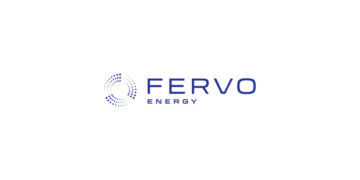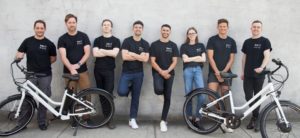Kevin Yun always knew he wanted to be an entrepreneur and had been working towards the dream since his college days in Champaign. After a lot of research, ups, and downs, he finally founded ‘GrowSurf’– a referral program for web app or site.
The journey to make ‘GrowSurf’ success was not easy, as it initially took a lot of effort for Kevin and his team. There was a point in the timeline when Kevin had almost given up on the project. GrowSurf is now building its way up to become ‘an ideal’ Referral-Marketing-as-a-Service platform that for all startups, helping them take their businesses to the next level.
USTechTimes.com spoke to Kevin Yun about his company and his struggles to launch a startup and make it a successful venture.
1. Please share about your background, and what are you working on currently?
My name is Kevin Yun. I studied finance at Illinois in Champaign, but focused on startups during my time there and became self-taught in coding and design. I ended up starting a company that became the first web and mobile design “bootcamp”, and later sold to WeWork/Flatiron in 2018. I’m currently working on GrowSurf, software that lets you easily launch a refer-a-friend program for your web app/site.
2. What motivated you to start your company?
Since the pre-college days, I’ve always been enamored by startups. It is fantastic being able to make a living anywhere in the world with just a laptop and building something awesome with friends. Running a SaaS business has always been the dream. We’ve got a great team at GrowSurf, and I enjoy what I’m doing now. I’m genuinely passionate about startups, so building a tool in the startup space feels right at home.
3. How have you attracted users and grown your company from the start?
It took us an incredibly long time. Getting our first customers was insanely difficult. There was a point where we were at rock bottom in morale, and it would have been so easy to throw in the towel right there. Grinding hard on product development, then iterating on it based on what little feedback we could get was what eventually led us to build something people wanted, and paid for. Once we finally made the right non-compromising product, companies took notice, and it’s something the market wanted.
4. What’s your business model, and how have you grown your revenue? What strategy worked best?
GrowSurf is SaaS (subscription-based), so our customers pay us monthly to access our referral platform. We have a mix of inbound and outbound sales funnels for growing the business. We’re still very early on, so we still have a lot left to figure out on the sales and marketing fronts.
5. How much funding have you raised in total so far? When was the recent financing round and any future funding plans?
$0. We intend to stay bootstrapped.
6. What are some marketing tips to help maximize the success of a product launch?
We utilize a spray-and-pray methodology, which may not be the best strategy. What that means is that we have a checklist of marketing/sales action items we want to do, but when we see returns on one or more of the strategies, we double-down and put in more resources. It’s a balance of trying new things to discover better returns and spending more time on things that are known to work.
7. What is a good product launch checklist?
Never underestimate the network of friends/family. In my opinion, that’s one of the biggest factors that you can leverage in a product launch. Everything else in a checklist can be found on Google.
8. What’s the hardest thing about product launches?
Getting lucky. For example, if you planned a Product Hunt launch for a whole month, but on that same day, Google also planned new product launch, then you just got unlucky. That difference could end up bumping you off the daily and weekly Product Hunt newsletters, which could cost you thousands of impressions and lots of potential users/customers.
9. What should all first-time startup founders know before they start their business?
If you aren’t the 1% of people who get lucky and get it right the first time, then you are just like the rest of us in a numbers game. It can take several attempts at starting a business and/or pivots to build something successful. Failure and time should be factored in when you decide to start a business.
10. What do most startups get wrong about marketing?
Focusing on marketing more than sales. Sales are more important in the early stage. Sales encompass marketing (finding copy/language that sticks with potential customers), forces you to talk with your users, and you can easily identify pitfalls from your early product/design. Simply put, sales is a two-way conversation, whereas marketing is one-way.
11. What’s the best advice you’ve ever received? And what advice do you have for someone interested in going in a similar direction?
There’s a book called Built to Last that analyzes the top companies of the world, and puts together factors of why they became successful. It’s a very romantic thought that you can build up a roster of characteristics for success, but it’s very misleading because correlation isn’t causation. This means it is anyone’s game, and that you really can do anything that you want to do. The world is a messy place, and no set of rules or advice guarantees success.
12. What are the one or two things that you would do differently if you could go back to 10 years ago?
Things take time. A very long, long time. If your gut tells you to stick with it, stick with it, and prepare for the long haul.
You can follow Kevin Yun’s on the GrowSurf Blog.
If you are budding entrepreneur or a startup founder looking for inspiration and investments, do follow our Interview section.
Follow USTechTimes.com for latest in technology and startups in the United States.






























